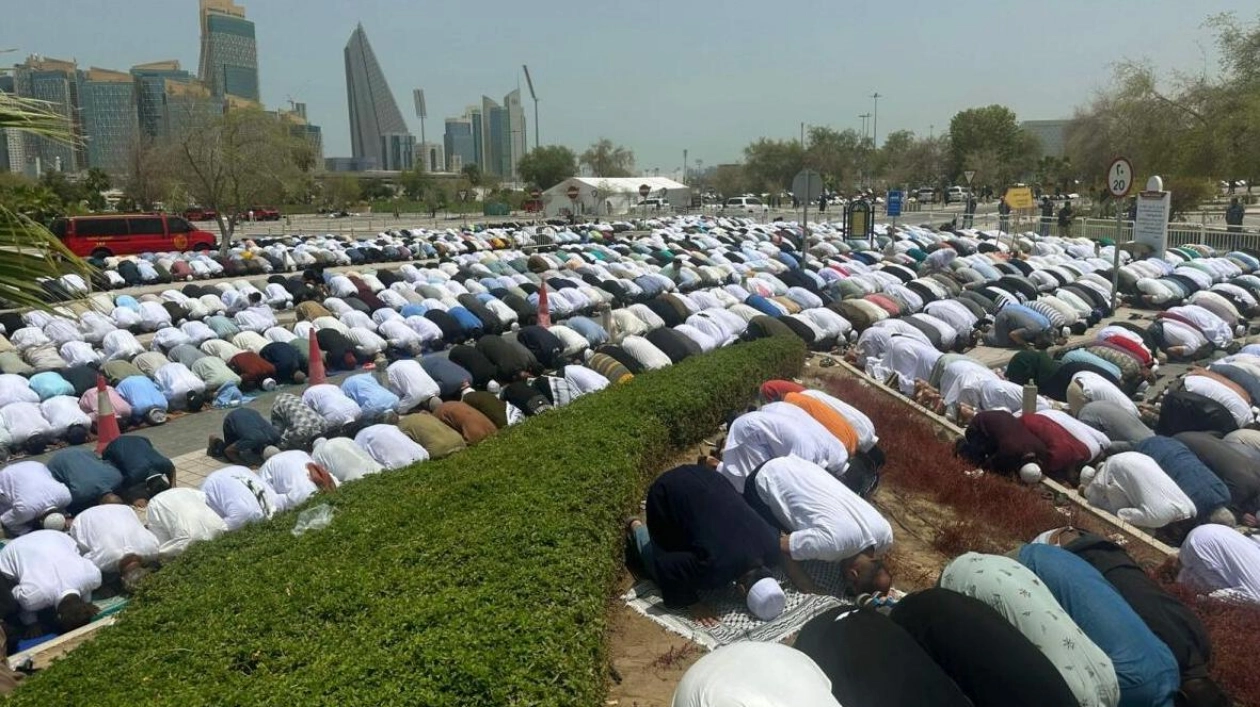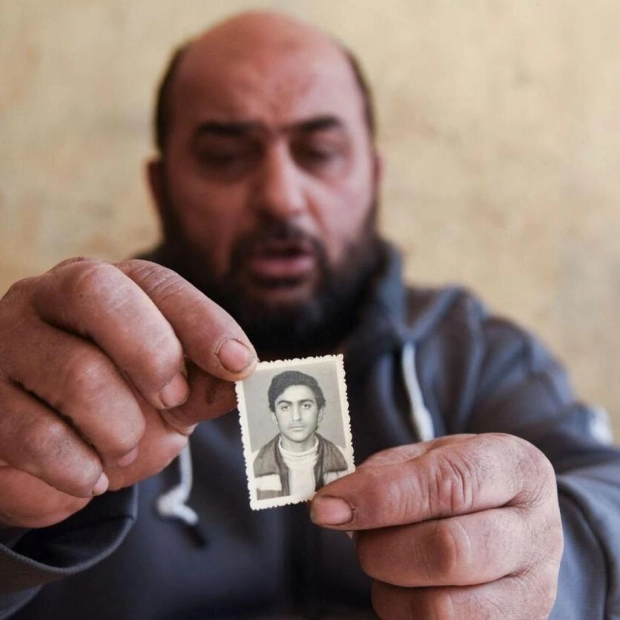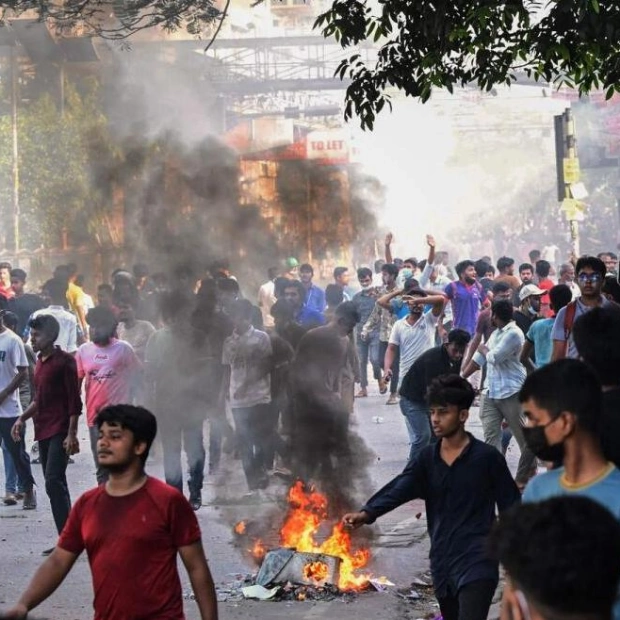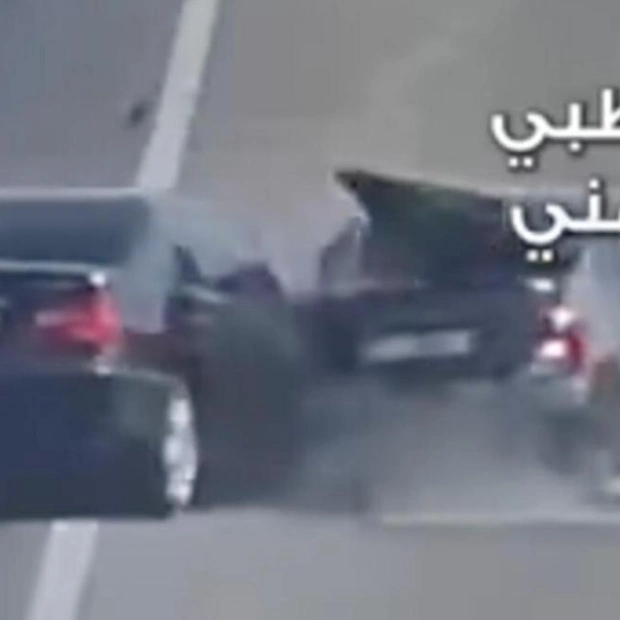Hundreds gathered at a mosque in Qatar on Friday to pay their respects to Hamas leader Ismail Haniyeh, who was killed in Tehran in an attack attributed to Israel, escalating concerns of a broader regional conflict. Haniyeh, the political head of the Palestinian militant group, was instrumental in negotiations aimed at resolving the nearly 10-month conflict between Hamas and Israel in Gaza. His death has sparked demands for retribution and cast doubt on the future of these peace efforts.
The mourners, including those who prayed inside the Imam Muhammad bin Abdul Wahhab Mosque, the largest in the Gulf emirate, and others who prayed outside on mats in 44-degree Celsius heat, witnessed the draped casket of Haniyeh, adorned with a Palestinian flag, being carried into the mosque briefly before being transported for burial in Lusail, north of Doha. The ceremony concluded with angry chants.
The assassination of Haniyeh, who was based in Qatar, is one of several events since April that have heightened regional tensions during the Gaza war, which has involved Iran-backed militant groups from Syria, Lebanon, Iraq, and Yemen. Turkey and Pakistan declared a day of mourning in honor of Haniyeh, while Hamas proclaimed a 'day of furious rage'. Many attendees at the funeral in Doha wore traditional white robes or street clothes, but most had scarves featuring the Palestinian flag and the message 'Free Palestine'.
Iran's First Vice President Mohammad Reza Aref and Turkish Foreign Minister Hakan Fidan were among the officials present at the funeral. Qatari Ahmed Mahmoud expressed that Haniyeh was a symbol for all Muslims and called for a response from Iran and self-defense against Israel. Haniyeh and his bodyguard were reportedly killed in a pre-dawn attack on their accommodation in Tehran, according to Iran's Revolutionary Guards.
Israel, which has been accused by Hamas, Iran, and others of orchestrating the attack, has yet to comment directly. A source close to Lebanon's Hezbollah revealed that Iranian officials met to discuss their next steps with representatives of the 'axis of resistance', which includes Hezbollah and Hamas. The discussions centered on either a simultaneous or staggered response from Iran and its allies.
The assassination occurred shortly after Israel targeted a southern suburb of Beirut, killing Hezbollah's military commander Fuad Shukr, who supports Hamas. Haniyeh's deputy, Saleh al-Aruri, had also been killed earlier this year in a strike attributed to Israel. In another significant incident, Israel confirmed an air strike that killed Hamas's military chief Mohammed Deif in Gaza.
Israel's Prime Minister Benjamin Netanyahu declared that Israel had dealt crushing blows to all its enemies. Iran's supreme leader Ayatollah Ali Khamenei led prayers for Haniyeh in Tehran and threatened 'harsh punishment' for his killing. France advised its citizens in Iran to leave due to the heightened risk of military escalation. Netanyahu has vowed to destroy Hamas in response to their attack on Israel that initiated the Gaza war.
The territory's civil defense agency reported several casualties in Gaza City, while Israel's military claimed to have killed around 30 militants near Rafah. Hamas's attack on October 7 resulted in the deaths of 1,197 people, mostly civilians, and the capture of 251 hostages, 111 of whom remain in Gaza. Israel's retaliatory actions have led to at least 39,480 deaths in Gaza, according to the Hamas-run health ministry.
The New York Times reported that Haniyeh was killed by an explosive device planted weeks earlier at a Tehran guesthouse, a claim denied by Iran's semi-official Fars news agency. Analyst Hugh Lovatt suggested that Haniyeh's killing would likely prevent any ceasefire with Israel. Despite this, the international community called for calm and a focus on achieving a truce in Gaza.
US President Joe Biden affirmed his commitment to defend Israel's security during a phone call with Netanyahu. In Israel, protests continued with demands for the release of the remaining hostages. Hezbollah's leader Hassan Nasrallah warned of an inevitable response to the killings, while Israel cited the assassination of Shukr as retaliation for rocket attacks that killed 12 youths in the Golan Heights.






